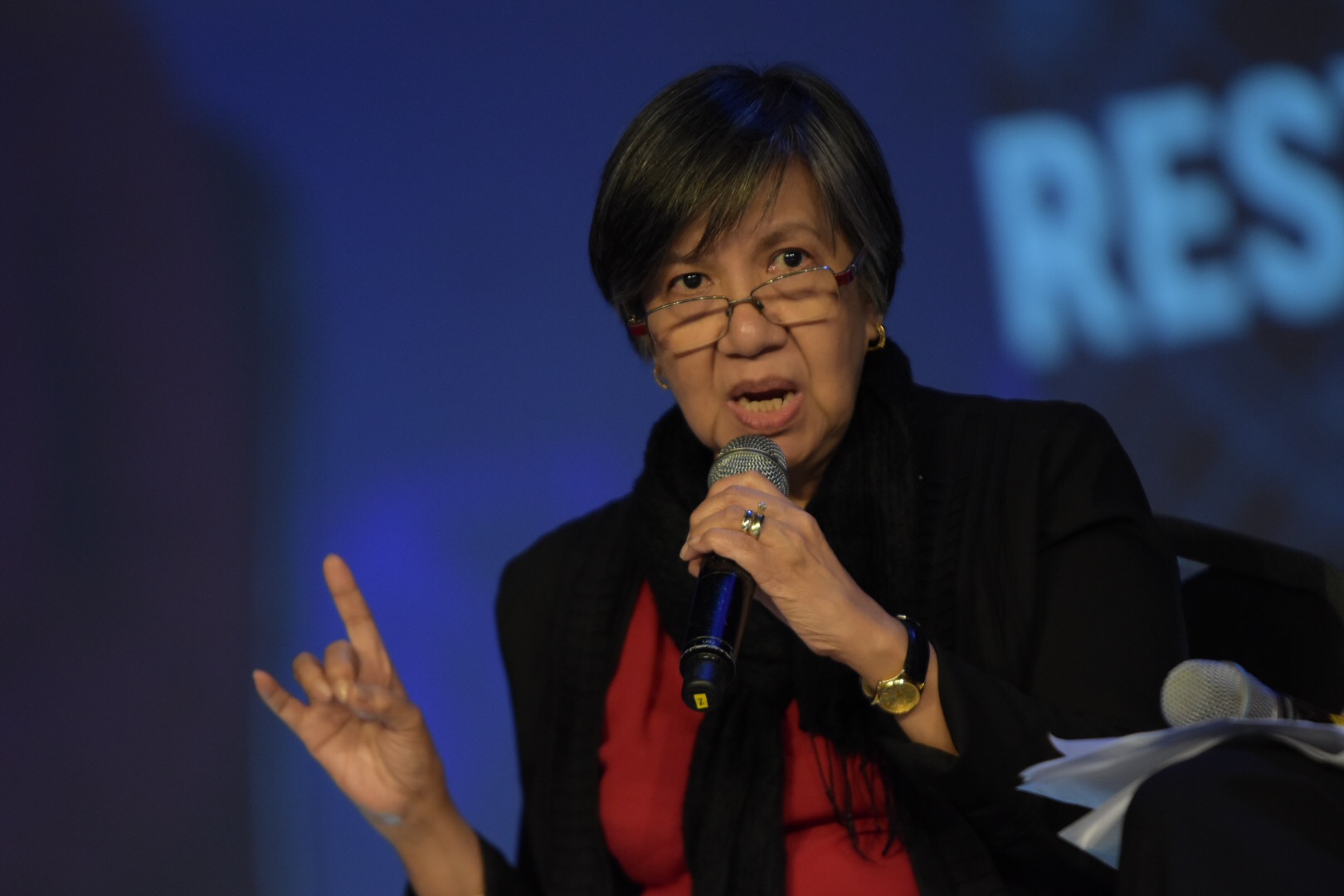
MANILA, Philippines – There is an ongoing campaign to discredit the media and journalists must work to regain the people’s trust back.
This is the consensus among veteran journalists Melinda Quintos-de Jesus, Gemma Bagayaua-Mendoza, and Yvonne Chua as they lamented Filipinos’ lower trust in journalists during Rappler’s “Truth, Trust, and Democracy in the Age of Selfies, Trolls, and Bots” forum held on Tuesday, November 28.
De Jesus, Center for Media Freedom and Responsibility executive director, said the “black propaganda” against journalists during the administration of President Rodrigo Duterte has affected public perception towards the media. (READ: Propaganda war: Weaponizing the internet)
Journalists and newsrooms’ mistakes – from erroneous reports, misquoted sources, to bribery allegations – were magnified by government propagandists. Duterte himself had even said corrupt journalists deserve to die.
“But being subjected to black propaganda – and that is exactly what has happened – yes, a lot of people have said, ‘Yes, I get irked by this’ or ‘It’s so easy for them to insult others.’ There really are faults that were then magnified to institutionally present a community that is all about lying, that is all about bringing out the news about the President,” said De Jesus in Filipino.
“So makikita naman natin may effect din ‘yong pagkampanya against us, sa propaganda against us, sa pagsabi na presstitute ‘yang mga ‘yan; bayaran lahat sila. Hindi naman po totoo,” she added.
(So you can see that the campaign against us really has an effect, the propaganda against us, calling all of us presstitutes; they're on the take. But this isn't true.)
Chua, Vera Files editor, cited the 2017 Philippine Trust Index which showed that 80% of Filipinos trust the government, which is 30% more than in 2015. Meanwhile, trust in the media stagnated.
Chua said the numbers pose a challenge to newsrooms to do some self-regulation.
“We have to address [it]; it’s a perception war. But then it also indicates to us that there’s something wrong with the profession in general….These are vulnerabilities that are being used by a highly popular government,” Chua said in Filipino.
“So a lot of self-examination needs to be undertaken, self-regulation and when I mean self-regulation, within the newsroom, not just peer regulation of press associations. That’s not enough,” she added.
Transparency in newsrooms

According to Chua, newsrooms need to be more transparent about their news processes, especially when a mistake has been committed.
Mendoza, Rappler’s research and content strategy head, said this is exactly what Rappler is doing through its corrections policy. Stories with erroneous information are not only corrected, but the correction is noted at the end of the article. A separate corrections page compiling the mistakes for the month is also released for transparency.
Mendoza said this was also the reason why Rappler had organized the forum.
“The connecting tissue is social media, [which] is allowing us to communicate in a more engaging way with our audience… [but it] has been co-opted. There’s a filter out there that’s dominating this new conversation space,” said Mendoza.
“What we have been doing actively is coming up with engagements like this, venues like this, where we’re really talking to our people, to our audience,” she added.
For De Jesus, however, regaining public trust in the media is not the journalists’ job alone. She said readers themselves must be willing to be part of the conversation to determine where the media go from here.
“Itatapon ba natin lahat ng mga ginawa ng ang tawag natin na mainstream journalism dahil nga merong maraming nagalit sa mainstream journalism? Or is this an opportunity to collectively, basically ask ourselves, 'Kayo, ano ba talaga ang gusto kong makuha sa news, sa balita?'” asked De Jesus.
(Are we just going to throw away everything that mainstream journalism has done just because some people are mad at us? Or is this an opportunity to collectively, basically ask ourselves, ‘What do you want to get out of the news?’) – Rappler.com